2018 Porsche Panamera Turbo S E-Hybrid and Panamera Sport Turismo Review

Head to your local Porsche dealership with a wad of cash — not to mention a willingness to part ways with it — and you can drive away with one of about 20 versions of the 911 sports car.
By comparison, the four-door Panamera is only available five ways (nine, if you include some of those same models with their wheelbases stretched a few inches). Except that’s about to change, with a sleek new sportback model, as well as a range-topping hybrid sedan adding to the Panamera’s appeal.
The Supreme Panamera
You read that right: The 2018 Porsche Panamera Turbo S E-Hybrid will sit atop the sport sedan’s hierarchy. But this isn’t just another hybrid model designed to appease the powers that oversee the efficiency of the modern automobile. It’s much more than that.
With a pre-existing plug-in Panamera already in the fold, the Panamera Turbo S E-Hybrid represents the pinnacle of performance for the big-bodied sedan. Efficiency is still part of the equation — this new version can travel the same 31 all-electric miles (50 kilometers) as the Panamera 4 E-Hybrid — but like the Porsche 918 Spyder before it, this new version uses its electrons to amp up performance.
Unlike the Panamera 4 E-Hybrid, which gets its gas power from a twin-turbocharged V6 engine — it’s a detuned version of the 2.9-liter unit that powers the almighty Audi RS5, for those keeping score — the Panamera Turbo S E-Hybrid leans on a larger twin-turbo V8 to get its fix of fossil fuels. The same 4.0-liter engine from the aptly named Panamera Turbo, output from the gas engine stands at a staggering 550 horsepower and 567 lb-ft of torque.
ALSO SEE: Tech-Filled 2018 Audi A8 Debuts With Robust Self-Driving Suite
As if that weren’t enough muscle, this Panamera gets a healthy dose of electric power as well. Wedged between the eight-speed Porsche Doppelkuplung dual-clutch automatic and the gas engine is an electric motor that’s good for an additional 136 horsepower and 295 lb-ft of torque. Put it all together, and net system output is an outrageous 680 horsepower and 627 lb-ft of torque, making the Panamera Turbo S E-Hybrid the most powerful Porsche since the 918 Spyder.
Fittingly, the gas-electric sedan employs the same boost strategy developed for the hybrid hypercar that came before it. That means the electric motor acts almost like an electric turbo when called upon, providing an insane amount of thrust at a moment’s notice. With all the system’s combined torque coming online at just 1,400 rpm, the more than 5,000-lb (2,300-kg) sedan can sprint from a standing start to 60 mph in just 3.2 seconds (zero to 100 km/h in 3.4 seconds). Top speed, meanwhile, is capped at 192 mph (310 km/h).
FAST FACTS
| Engine: | 4.0L twin-turbo V8, electric motor, 14-kWh lithium-ion battery (Turbo S E-Hybrid) |
| Engine: | 3.0L twin-turbo V6; 2.9L twin-turbo V6; 2.9L twin-turbo V6, electric motor, 14-kWh lithium-ion battery; 4.0L twin-turbo V8 (Sport Turismo) |
| Output: | 680 hp, 627 lb-ft combined (Turbo S E-Hybrid) |
| Output: | 330 hp, 331 lb-ft; 440 hp, 405 lb-ft; 462 hp, 516 lb-ft 550 hp, 567 lb-ft (Sport Turismo) |
| Transmission: | 8-speed dual-clutch automatic |
| 0-60 mph: | 3.2 seconds (Turbo S E-Hybrid) |
| 0-100 km/h: | 3.4 seconds (Turbo S E-Hybrid) |
| US Fuel Economy (MPG): | Unavailable |
| CAN Fuel Economy (L/100 km): | Unavailable |
| US Price: | Starts at $185,450 including destination (Turbo S E-Hybrid) |
| CAN Price: | Starts at $211,050 including destination (Turbo S E-Hybrid) |
| US Price: | Starts at $97,250 including destination (Sport Turismo) |
| CAN Price: | Starts at $110,950 including destination (Sport Turismo) |
Electrifying Performance
But performance is about more than just power, and so Porsche has bolted just about every available add-on from the Panamera options list to the Turbo S E-Hybrid as part of its standard kit. That means adjustable air suspension, electromechanical anti-roll bars, active torque-vectoring and rear axle steering help the hulking sedan tackle corners that much quicker, and carbon-ceramic brakes bring the whole thing to a halt in a hurry.
Ready to show off how the whole package comes together, Porsche handed over the keys to a beautiful Sapphire Blue example of the hybrid sedan for a few laps around the tight and technical Vancouver Island Motorsport Circuit. Carved into the side of a hill, the tiny 1.4-mile (2.3-kilometer) track features an astounding 19 turns, not to mention plenty of elevation changes, making it less than ideal for a car that spans nearly 200 inches (5,050 millimeters) from bumper to bumper.
No matter for the Panamera, though, with the car charging hard into every corner, and the torque-vectoring and rear-axle steering systems helping the car work its way through them like something much smaller. While the additional weight of the hybrid system, including the bulky 14-kWh battery pack tucked beneath the cargo area, is obvious it’s certainly not burdensome, with the sedan feeling far more agile than anything this size should.
ALSO SEE: 2017 Porsche Panamera Review
Out on the road was a similar story, with the hybridized Panamera Turbo turning the twisting pavement around Vancouver Island into a pacified play thing. In fact, it was only the tightest of turns that saw the sedan grab at more road than what was offered within its lane markings. With passing zones few and far between, the car was also able to make quick work of slower traffic, leaving plenty of meandering motorists in its wake.
When playtime was over, the Panamera Turbo S E-Hybrid was able to transform into a quiet and comfortable cruiser that could give any of its adversaries a run for their money. As sporty as it may be, this is still a big and roomy luxury sedan, and it drives as smoothly as any of its peers. That means a comfortable and well-equipped interior that lives little to be desired, with all the options one could want — right down to massaging seats and Wi-Fi connectivity. The only concession the car makes to the likes of other large sedans on the market is in the cargo area, with the battery pack cutting into how much room is offered behind the rear seats.
With just 14.3 cu-ft (405 liters) of space with the seats upright, the sedan’s trunk is noticeably smaller than those of its rivals. Add in the bulky portable charging kit, and usable room is certainly at a premium. For those in need of additional space for their stuff, there is another option…
Finally, a Porsche Wagon
Let’s cut right to the chase: The 2018 Porsche Panamera Sport Turismo is a wagon. It’s sleek and sexy and stunning, an outrageously beautiful example of automotive design. But it’s still a wagon. Now, some of you out there might misconstrue that as a complaint from yours truly. Trust me; it’s anything but. Instead, consider it a disclaimer — a warning for those opposed, in any way, shape or form, to this car’s way, shape or form. Because this might be the perfect Porsche. OK, so the engine’s in the front, it has four doors, and the only gearbox offered is an automatic one. It’s also big; like, really big. But no Porsche before it has offered the same level of performance and practicality in such an attractive package.
Now that the purists are offended enough to stop reading, here’s what you need to know about the Panamera Sport Turismo. This is the car Porsche’s designers and engineers wanted to develop but weren’t allowed to when the Panamera project first came to be. Building a four-door was already an affront to all things Porsche. Making it a wagon was completely out of the question. With the redesigned Panamera introduced last year, though, the brand decided to once again push the envelope of what a Porsche could be.
ALSO SEE: 2017 Mercedes-Benz GLE 550e Review
That means everything from the rear doors forward is exactly like the second-generation sedan, with a low and long profile that ditches the bubble-like shape of old. Whereas the sedan’s roofline drops off dramatically at the back, though, this Panamera Sport Turismo features a sportback design that only enhances the aesthetic package. It also adds to the interior, with about 1.8 cu-ft (50 liters) of extra cargo room behind the tailgate.
Under its sheet metal, the Porsche Panamera Sport Turismo is identical to its sedan sibling with the addition of standard all-wheel drive. Powertrain choices range from a twin-turbocharged six-cylinder to a twin-turbo V8 churning out 550 horsepower and 567 lb-ft of torque, with a plug-in hybrid version in the middle for good measure.
As expected, any of the four versions available perform exactly like their Panamera sedan counterparts, with plenty of power even in base trim helping the Sport Turismo hurry around like a Porsche should. Likewise, it can carve corners in a way a car of this size simply shouldn’t even without four-wheel steering, with a crisp electromechanical setup that, while short on feel, is plenty precise.
The Verdict: 2018 Porsche Panamera Turbo S E-Hybrid Review
So how much will one of these new Panameras set you back? In typical Porsche fashion, about as much as you’re willing to spend. The range-topping Panamera Turbo S E-Hybrid starts at a cool $185,450 ($211,050 in Canada) including destination, but that price can easily eclipse $220,000 ($240,000 in Canada) with all the options boxes checked.
By comparison, the Panamera Sport Turismo looks like a bargain, though it’s still substantially more expensive than the sedan. Starting at $97,250 ($110,950 in Canada) including destination for a base model, the top-of-the-line Turbo model’s price soars to $155,050 ($176,850 in Canada) — and that’s before options. The version we drove on Vancouver Island was spec’d out to $198,800 ($222,120 in Canada), which is a pretty big wad of cash. But in the famous words of Ferris — that’s Bueller, by the way — if you have the means, I highly recommend picking one up.
LOVE IT
- Sports car performance in a practical package
- Drives smaller than it is
LEAVE IT
- Pricey starting price
- Cost of options

Dan is AutoGuide.com's Road Test Editor, a long-suffering Buffalo Bills fan, and a car guy since childhood. He enjoys long walks on the beach and long drives just about anywhere the road, track or trail will take him. You'll see him driving around evaluating cars and in front of a camera talking about them. Dan is a member of the World Car of the Year jury.
More by Dan Ilika



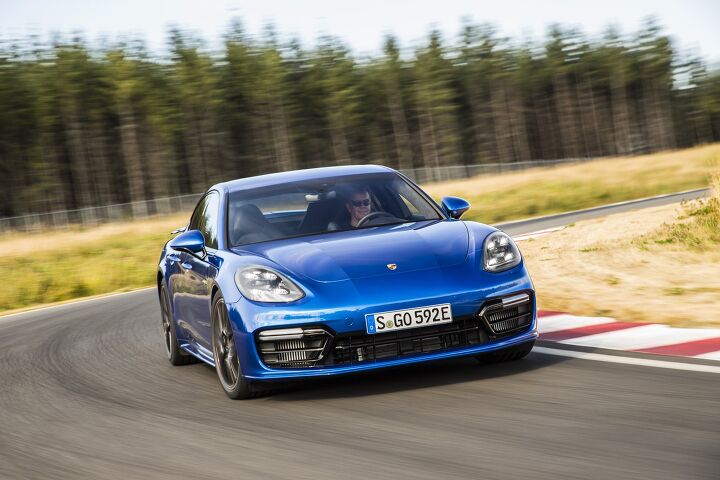
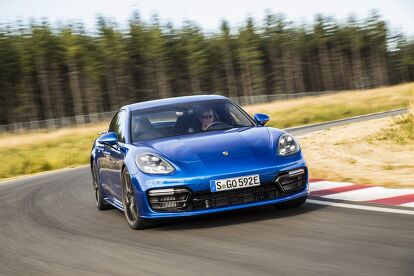
































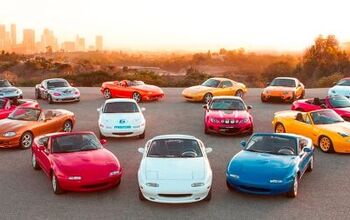
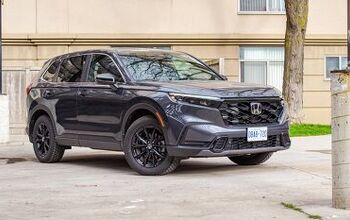


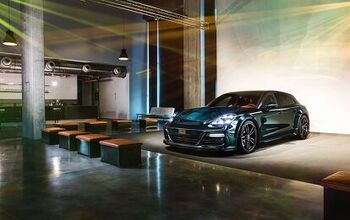
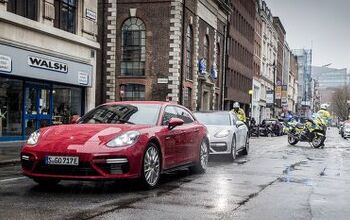
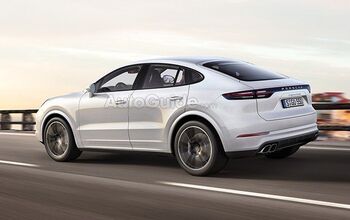


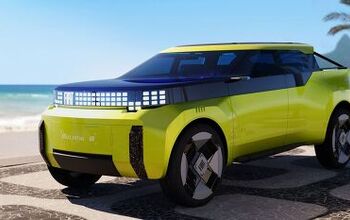
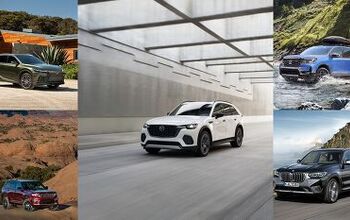
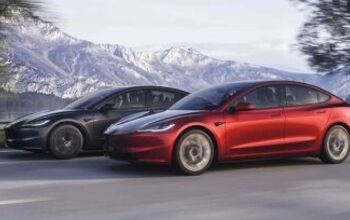
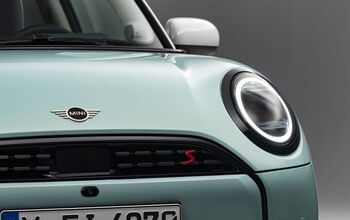
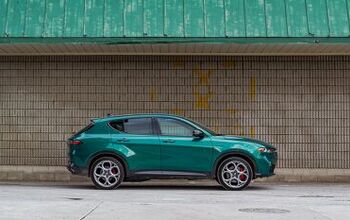
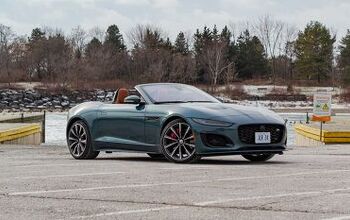
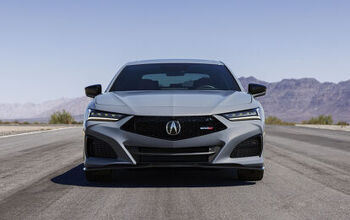

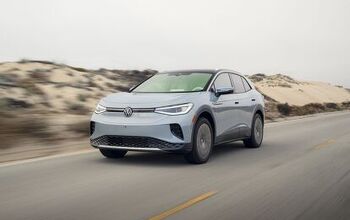
Comments
Join the conversation